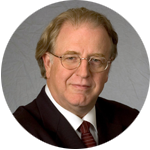
The nation’s founders didn’t have access to today’s social media – but what if they had?
Of course, they took good advantage of the media that they did have, from letters to printed newspapers and journals. They spoke loudly to their fellow citizens, using crowds on the village green instead of speaking through the “village screen” now available worldwide.
Not everything was different. They faced what we might call “colonial terms of service,” rules like those imposed today by social media platforms that govern what can be said and how we can say it. For example, you could not say anything bad about the king, whether it was true or false.
One big difference: Washington, Jefferson, Hamilton and others faced government regulations and sanctions for what they said or wrote through any medium because the First Amendment was not ratified until 1791 as part of the Bill of Rights.
Today we agree to terms of service rules to use social media platforms, an agreement outside the First Amendment’s free speech protection. Social media companies are private entities and have their own rights under the First Amendment, which prevents – for now, at least – government control or censorship over content on their sites.
There’s no imagination needed in some cases to take the work of the Founders right into today’s social media structure. Patrick Henry’s 1775 declaration “Give me liberty or give me death” works as effectively today as a tweet as it did nearly 250 years ago in rousing Virginians to send troops to support the American revolution.
Consider the impact in any medium of the Declaration of Independence’s statement that, “We hold these truths to be self-evident: that all men are created equal, that they are endowed by their creator with certain unalienable rights, that among these are life, liberty and the pursuit of happiness.”
Of course, in today’s post, that same phrase might look like this: “👨 and 👩are =, endowed with the right to 🧬,🗽and the pursuit of 😊.”
There’s great debate today across the political spectrum on whether the government should step in to regulate social media. Some would block platforms from banning anyone or provide special protections for political candidates or elected officeholders. Others would mandate increased efforts to combat misinformation or make social media companies financially liable for any harm caused by what others post.
If such rules and regulations were in effect for the Founders, would Twitter have blocked – perhaps only temporarily – two future presidents for the bitter exchanges between the campaigns of John Adams and Thomas Jefferson during the 1796 presidential election?
One report has it that Adams was labeled “a fool, a hypocrite, a criminal, and a tyrant,” while others called him “a syphilitic, royalist bastard.” Jefferson was called “a weakling, an atheist, a libertine, and a coward,” with some critics describing him as a “half-breed.” One account says that “even Martha Washington succumbed … telling a clergyman that Jefferson was ‘one of the most detestable of mankind.”
While Twitter’s terms of service do provide wide scope for personal comments, Adams or Jefferson today might have filed a complaint about “long-term harassment,” something the social media giant says might trigger a ban on future posts.
They also could sue for defamation, but the courts generally consider even the most spiteful or vulgar opinion — particularly when it’s political speech — to be protected by the First Amendment.
TAKING “ONLINE” THREATS OFFLINE
A less-judicious way — and illegal in most states, even then — of settling such “online” disputes would be how Aaron Burr and Alexander Hamilton settled their personal attacks: pistols at dawn. But let’s remember how badly that option turned out: Hamilton was mortally wounded in the duel and Burr’s reputation was damaged beyond repair.
And what of Jefferson’s words in a letter endorsing the American revolution: “The tree of liberty must be refreshed from time to time with the blood of patriots and tyrants”? As a tweet today, perhaps around the Jan. 6 insurrectionist attack on the U.S. Capitol, would that call to action run afoul of Silicon Valley rules – and perhaps lead to an FBI knock on a Monticello door? Such a phrase, depending on the context, could be judged a “true threat” and not protected speech.
The First Amendment provides us with great protection from government interference for what we say and write, particularly on political issues or matters of public interest. As we deal with the societal impact of social media — still a relatively new way of speaking — we should remember that the nation’s founders created those protections to allow for what the U.S. Supreme Court has called “robust and vigorous” debate. In 2002, Justice Anthony Kennedy wrote, “The right to think is the beginning of freedom, and speech must be protected from the government because speech is the beginning of thought.”
We ought to think about those words – and why the Founders and the nation ratified the First Amendment’s five freedoms during a period of great division and debate not unlike today – in considering how and if to further regulate social media and other means of communication.
As Benjamin Franklin said (and would no doubt have posted): “Those who would give up essential liberty to purchase a little temporary safety deserve neither liberty nor safety.”
